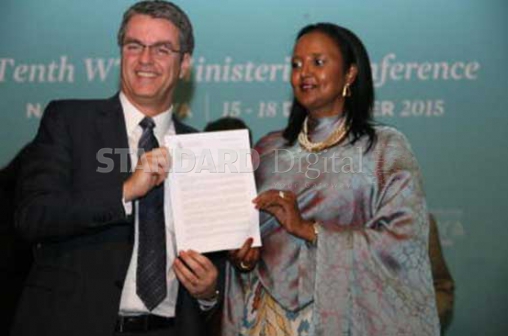×
The Standard e-Paper
Fearless, Trusted News

NAIROBI: Kenya and other poor countries left the grueling talks of the World Trade Organisation with major wins on agriculture despite stiff opposition from developed nations, including the United States.
When the conference ended late last evening, the delegations had agreed to eliminate production and export subsidies, which have been blamed for distorting market prices by keeping them artificially low.